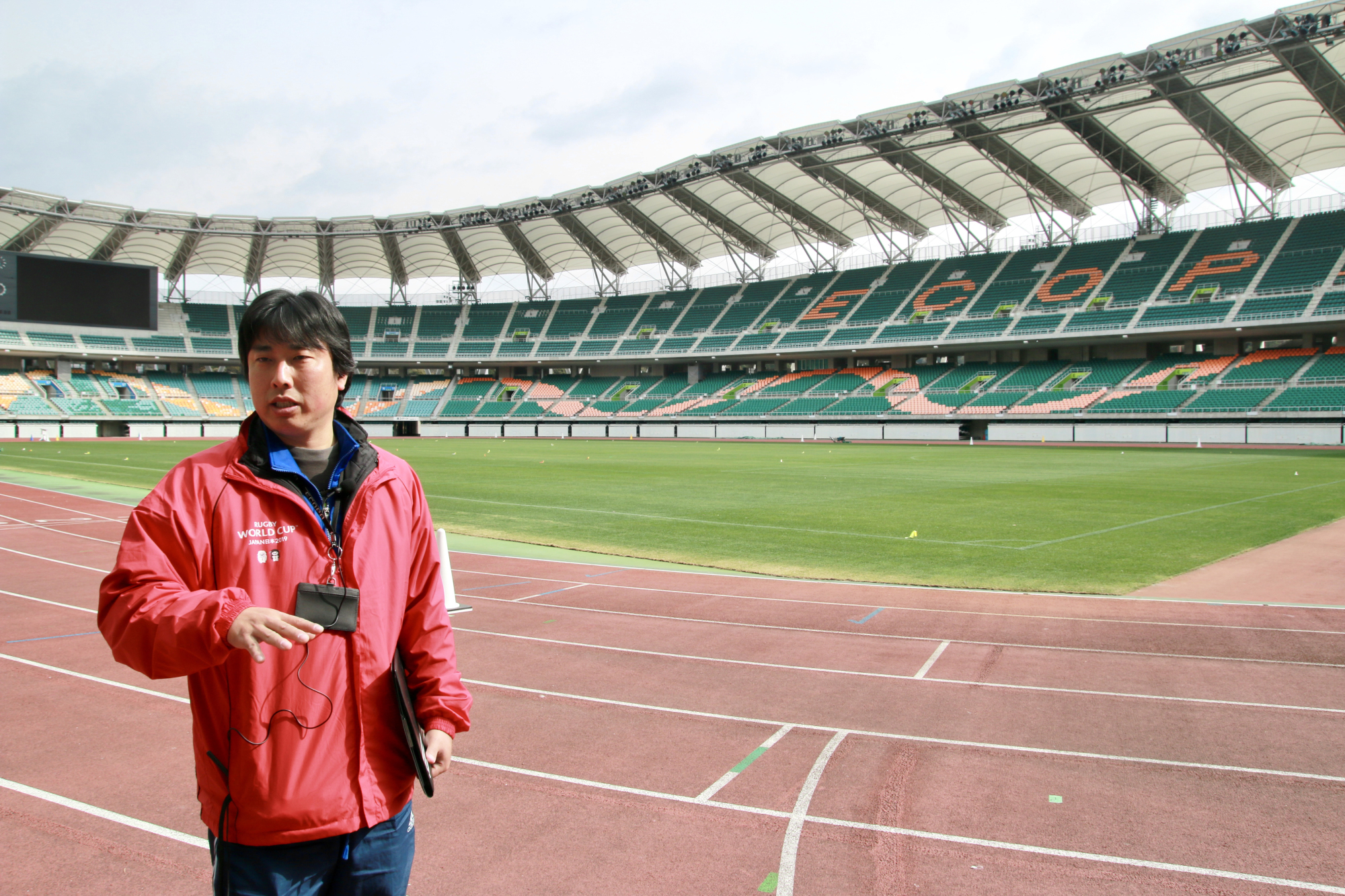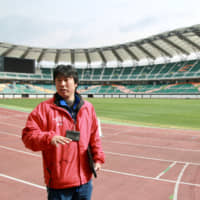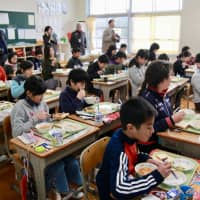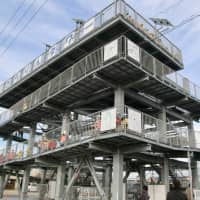When it comes to international sports, the cozy western Shizuoka Prefecture town of Fukuroi has already been there and done that.
At this year's Rugby World Cup, however, the town is confident that it can offer a lot more.
In 2002, Fukuroi accepted fans from across the country and around world during the FIFA World Cup in Japan and South Korea. Shizuoka Stadium Ecopa hosted some marquee, star-studded matchups, including a quarterfinal contest between England and Brazil.
This fall, the city hopes its residents and visitors will cherish the opportunity to enjoy another global sporting extravaganza and have even more valuable interactions with each other.
For the Rugby World Cup, Ecopa has been allocated four group stage games featuring powerhouse nations such as Scotland, Ireland, South Africa and Australia as well as host Japan. The Brave Blossoms will face Ireland on Sept. 28, adding to the hype that has seen tickets to games at Ecopa fly off the virtual shelves.
Stadium administrators are confident in their operations and with their infrastructure, thanks to their past experience hosting World Cup games in 2002 as well as other big non-sports events such as concerts.
Ecopa, which with a capacity of 50,000 is the Rugby World Cup's second-largest venue behind International Stadium Yokohama, hosted a Japan-Ireland test match in June 2017.
"We've had events that drew more than 50,000 attendees quite a few times," said Keisuke Matsubayashi, who works for the stadium's business planning division, in mid-February. "In terms of access to the stadium (which is a 15-minute walk from the nearby JR Aino Station) and things like that, we don't expect any major problems to happen."
Operators of the 18-year-old stadium, which was built for the 2002 event, have made upgrades ahead of the Rugby World Cup including the turf, lights and a partial roof that covers the stands.
Hideyuki Harada is currently serving his 18th year as the mayor of Fukuroi City, meaning he was at the helm during soccer's World Cup. He emphasized that it is his "responsibility" to spread the name of the small city with a population of about 88,000 through the quadrennial rugby festival.
The 76-year-old assured that Fukuroi would be an even more welcoming town for visitors during the Rugby World Cup than it was in 2002.
Harada recalled that although global megastars such as England's David Beckham, German goalkeeper Oliver Kahn and Brazilian striker Ronaldo competed in the city at the soccer World Cup, they were heavily secluded for security reasons and were not really accessible to fans. He added that he hopes to lower the barriers between the players and fans a little more this fall.
Harada provided a rough estimate that around 160,000 fans will travel to Ecopa for the Rugby World Cup, with a quarter hailing from overseas. He said that the event would be a good opportunity for visitors and Fukuroi residents to create a festive mood together.
The invitation for visitors to enjoy the town represents a significant change from 2002, when the city's fears of a hooligan invasion turned out to be groundless.
"Even if there are people that drink beer and enjoy walking around the town, I think the Fukuroi residents will be welcoming to them," said Harada, a native of Kudo Village, which later became part of Fukuroi. "There weren't atmospheres like that during the 2002 World Cup because the security was a little too excessive. I don't think it will be like that this time."
In addition to relaxing security, the city and its chamber of commerce plan to promote cashless plazas for the convenience of international tourists.
"There's about 1,000 meters from Aino Station (to the stadium)," Harada said. "We are planning to have many street stalls between them so that the visitors can enjoy things like taiyaki (fish-shaped buns) and oden (hot pot). And we would like the visitors to be able to buy them with their (credit) cards."
Fukuroi will also offer international tourists a glimpse of ordinary Japanese life during the tournament. The city will introduce home stay program for tourists from overseas, which Harada said the city did not have for the 2002 tourney.
A total of 100 households are expected to participate as host families on and around the match days. Hosts will not only provide places to sleep and meals, but also give guests car rides to the stadium or train station.
"There will be a lot more interactions between the visitors and citizens this time," insisted Harada, who added that his family will participate in the home stay program.
The tournament has inspired Fukuroi to become more of an international city, with residents encouraged to learn English.
"With the Rugby World Cup coming to Fukuroi, we want to improve the English skills of our citizens. We want them to be able to give (strangers) directions," said Eri Fujishita of Fukuroi's Board of Education.
While Japan will require fifth- and sixth-grade elementary students to study English from the 2020 fiscal year, Fukuroi introduced English classes at all of its elementary schools in 2018.
The city has eagerly embraced other progressive and radical experiments and efforts, like an anti-earthquake/tsunami reinforcement plan and dietary education through meals at elementary schools.






















With your current subscription plan you can comment on stories. However, before writing your first comment, please create a display name in the Profile section of your subscriber account page.